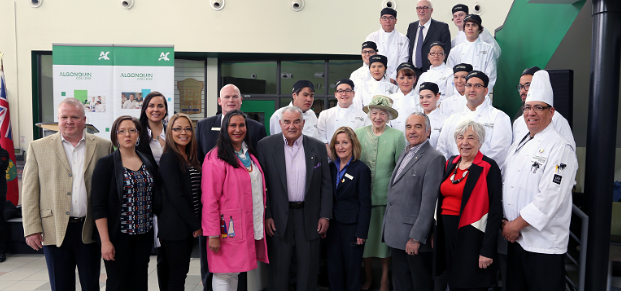Your Online Friendship Centre
Exit Site
Your Online Friendship Centre
For the past 40 years, Wes Wilkinson has been involved in the culinary world. He has traveled across Canada as an apprentice chef, sous chef, head chef and culinary coach, gaining expertise, numerous certifications and awards along the way.
When Wilkinson started his master's thesis in hospitality and tourism at Royal Roads University, he had a research question that no one seemed have a solution for. Why do Indigenous students have such high dropout rates from postsecondary education? More specifically, he wanted to address this question in relation to traditional culinary schools.
After digging deeper into that question, he realized a lot of students wanted to bring the skills they learned in college or university back to their communities. Wilkinson realized that, for Indigenous cooks going to live and work in Indigenous communities, knowing how to make a perfect Hollandaise sauce or crème brulée isn’t as important as knowing how to prepare traditional Indigenous food.
So, Wilkinson set out to create a culinary program that would engage Indigenous students by incorporating traditional recipes and methods of cooking, while also seeking to reduce the culture shock that can be associated with moving out of one’s native community.

Algonquin College in Ottawa recently launched the Indigenous Cook – Pre-Apprentice program and brought Wilkinson’s work to fruition. The one-year college program provides students with food theory, knife skills, classical kitchen language, and practical food preparation skills. In addition to this, the program is taught entirely by Indigenous instructors with an Indigenous curriculum, and the classes incorporate spirituality, tradition and culture. The recipes have been passed down through generations, and students will often travel off-site to take part in activities such as hunting and preparing beaver and other traditional game.
The classes keep with traditional Indigenous practices to keep students feeling at home. Each lesson starts with a smudge, and the class takes the form of a sharing circle. Instructors in the program have carte blanche in their teaching practices, so they can adapt the classes to incorporate traditional practices as they see fit.
Wilkinson, who himself is not Indigenous, committed himself to researching and learning to make this program a reality. He built the program with the help of chiefs and Aboriginal influencers such as the Wabano Centre for Aboriginal Health’s executive chef Jerome Brasser, and chef Marie-Cecile Nottaway of Wawatay Catering. Wilkinson also regularly consults friends at Kitigan Zibi and Akwesasne for input and feedback.
Wilkinson has the backing of Algonquin College’s Aboriginal Student Centre, and support systems are in place for students who need help meeting the technology requirements usually expected by the college. In order to make sure students are fully employable upon graduation, there is an 8-week work placement in the Ottawa food industry.
Time will tell if Wilkinson’s program can increase the graduation rate of Indigenous culinary students, but for now, he’s working hard to make it a reality in any way that he can.